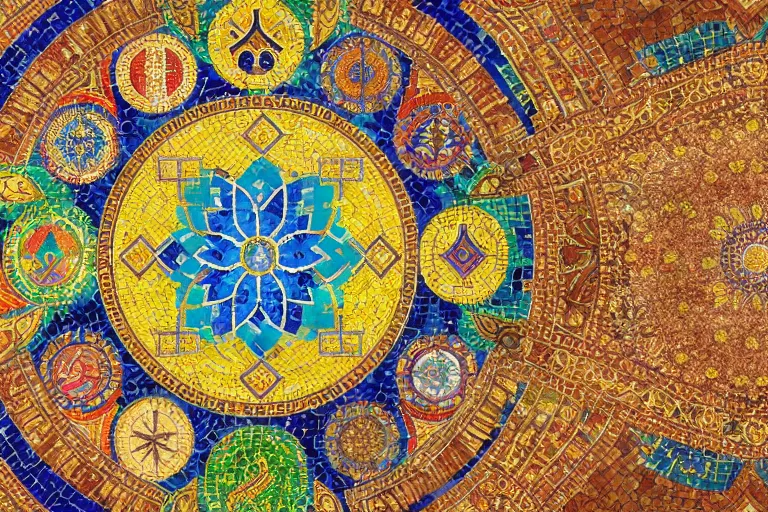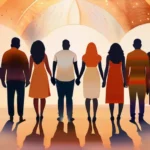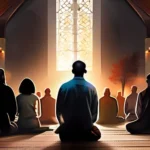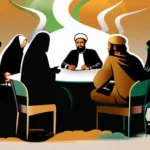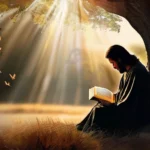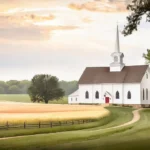Exploring the Impact, Evolution, and Influence of Religion on Modern Society
Religion has played a significant role in shaping human societies throughout history. This article delves into the various aspects of religion’s influence, from its historical roots to its contemporary impact.
The Historical Roots of Religion
Imagine stepping back into time, when civilizations first began to rise and fall like waves on the vast ocean of human history. Religion, often seen as the cornerstone of these societies, played a pivotal role in shaping their structures and beliefs. How did it all begin? Was religion merely a tool for governance or something far more profound?
Tracing back to ancient civilizations such as Mesopotamia and Egypt, we see that religion was deeply intertwined with daily life. The pharaohs of Egypt were not just kings but deities themselves, embodying the divine will on Earth. In Mesopotamia, the concept of a pantheon of gods who controlled natural forces like rain and fertility created a society where appeasing these deities was paramount.
The Babylonians and their code of laws, for instance, show how religion influenced societal norms. They believed in an overarching order controlled by the gods, which dictated every aspect of life. This belief system helped to create a structured society but also led to harsh punishments for those who defied these divine laws.
In Greece, the role of religion was different; it was more about personal deities and mythology rather than strict governance. The pantheon of gods in Greek culture allowed individuals to connect with their own sense of divinity, creating a unique blend of individualism and communal worship.
These ancient societies laid the groundwork for what would become more complex religious structures in later times. From the grandeur of Roman temples to the simplicity yet profound impact of Buddhism, each civilization contributed uniquely to the tapestry of human belief systems. The question remains: how did these early religious frameworks influence the development of modern societies?
The Evolution of Religion Over Time
Imagine religion as a vast river, flowing through time and shaping societies along its banks. How did this mighty current evolve over millennia? Let’s explore some key events, movements, and figures that have shaped its development.
‘Is it not fascinating how the same river of faith can take such diverse paths?’
The early Christian church, like a seed planted in fertile soil, began to grow with the help of key figures such as St. Augustine. His works laid the groundwork for much of Western Christian thought and provided a philosophical framework that influenced societal structures. As the church spread across Europe, it played an integral role in shaping medieval society, acting as both a spiritual and political force.
The Renaissance saw religion transform once more, with humanism emerging as a powerful intellectual movement. Figures like Pico della Mirandola championed individual potential and human dignity, sparking debates about the relationship between faith and reason. This period marked a significant shift, where religion began to be scrutinized through a new lens of critical inquiry.
The Protestant Reformation, initiated by Martin Luther, was like a storm breaking over the church’s calm waters. His Ninety-Five Theses ignited a wave of reform that reshaped Christianity and challenged the authority of the Catholic Church. This movement not only transformed religious practices but also contributed to political and societal changes across Europe.
In the 19th century, the rise of liberal theology saw religion adapt further, emphasizing a more personal and experiential relationship with God. Figures like Friedrich Schleiermacher argued that religion was rooted in human experience rather than dogma alone. This shift had profound implications for how religion would be practiced and understood in the modern era.
The 20th century brought challenges of its own, with movements such as fundamentalism asserting a return to traditional interpretations of religious texts. These reactions to modernity sparked significant debates about the role of religion in society and personal life.
As we look at these pivotal moments, it becomes clear that religion has been an ever-evolving force, adapting to meet the needs of societies as they changed. From ancient civilizations to modern times, its impact is undeniable, shaping not only beliefs but also the very fabric of our world.
Religion’s Influence on Society Today
Religion’s Influence on Society Today: Examine the contemporary role of religion in society, discussing its impact on politics, culture, and social dynamics.
Imagine a vast tapestry woven from countless threads, each representing a different facet of human experience. Religion stands as one of those threads, intertwining with the fabric of our lives in profound ways. How does this thread affect the broader canvas we call society? To understand religion’s role today, let’s consider its impact on politics.
Is religion merely a private matter or does it shape public life and policy decisions? Many argue that religion can be both a source of division and unity in political spheres. Take, for example, debates over healthcare policies, environmental regulations, or moral issues like abortion. How do religious beliefs influence these discussions? Do they lead to more polarized views or inspire collaborative problem-solving?
Moreover, how does culture shape religion and vice versa? Can we truly separate the two in modern society? Culture provides a context within which religious practices evolve and are experienced. Festivals, rituals, and community gatherings often blend religious and cultural elements. But as societies become more diverse, can these traditions remain relevant or must they adapt to new social dynamics?
Consider the role of religion in social dynamics too. It often serves as a unifying force, bringing people together based on shared beliefs and values. Yet, it can also exacerbate divisions when certain groups prioritize their religious identities over others. How do we navigate these tensions? Can religions play a constructive role in fostering dialogue and cooperation among different communities?
In conclusion, religion’s influence is multifaceted and ever-evolving. It plays a significant part in shaping political landscapes, cultural expressions, and social interactions today. Understanding its contemporary role requires us to explore how it interacts with these various dimensions of society, ultimately contributing to the rich tapestry of our world.
The Role of Religion in Shaping Values and Beliefs
How does religion shape our values and beliefs, making us who we are? Imagine religion as a vast garden, where each individual picks their own flowers, shaping their personal worldview like planting seeds in different corners. These seeds grow into the values that guide our daily lives—our sense of right and wrong, our aspirations, and how we view the world around us.
Consider the way religions teach morality through commandments or ethical codes. For instance, The Ten Commandments from Christianity outline principles like not stealing or lying, which have deeply influenced Western legal systems and societal norms. Similarly, the teachings of Buddhism emphasize compassion and mindfulness, fostering a culture of peace and understanding.
Societal norms are also heavily influenced by religious beliefs. Take, for example, the role of religion in family structures across many cultures. In some societies, religious teachings define the roles within families—what is considered acceptable behavior and what isn’t. This can vary widely from one culture to another, with some communities prioritizing traditional values while others embrace more progressive norms.
Moreover, religion often plays a significant role in public policy. How do laws reflecting religious beliefs impact society? For example, debates over marriage equality or abortion rights are deeply rooted in religious doctrines that have shaped political discourse and legislation worldwide. These discussions highlight the complex interplay between faith and governance.
In summary, religion’s influence on values and beliefs is profound, weaving through the fabric of our personal and societal lives. It shapes not just what we think but also how we act in the world. Understanding this role helps us navigate the diverse tapestry of modern society, recognizing both its richness and its challenges.
Religion and Conflict: A Complex Relationship
Can religion truly be the root cause of conflict, or does it serve as a bridge for peace? Throughout history, we’ve seen both sides of this coin. In many instances, religious differences have been the spark that ignites conflicts, leading to wars and divisions within societies. But is religion inherently divisive?
Think about the Crusades, where Christian forces clashed with Muslims over control of holy lands. Or consider the Indian subcontinent, where partition in 1947 led to one of the most devastating periods of religious conflict, leaving countless dead and displaced. These examples paint a picture of religious differences driving hatred and violence.
However, can we not find instances where religion fosters peace instead? Consider the role of interfaith dialogue initiatives that bring together people from different faiths to promote mutual understanding and cooperation. Or think about religious leaders who have spoken out against conflict and violence, advocating for non-violent solutions. These actions highlight how religion can be a force for good in promoting peace.
The key may lie not in religion itself, but in the interpretation and application of religious teachings by individuals and communities. When religious texts are used to promote hate and division, conflicts ensue. But when these same texts are interpreted through lenses of compassion and understanding, they can inspire acts of kindness and cooperation.
So, how can we harness the positive aspects of religion while addressing its potential for conflict? Perhaps by fostering inclusive dialogues that encourage respectful exchanges between people of different faiths. By promoting education about religious diversity, we can build bridges rather than walls.
In conclusion, the relationship between religion and conflict is complex and multifaceted. While it has often been a catalyst for strife, there are also instances where it has served as a unifying force. The future of this dynamic will likely depend on our collective efforts to navigate these challenges wisely.
The Future of Religion in Society
As we gaze into the crystal ball of future society, one question looms large: will religion continue to shape our world in ways that are both profound and polarizing? The answer is not clear-cut, but emerging trends suggest a complex yet intriguing trajectory. Imagine a world where technology and spirituality converge, creating new forms of religious expression. How might this impact global dynamics? Will traditional religions adapt or will they face challenges from newer spiritual movements?
In exploring the future of religion in society, it’s crucial to consider the role of digital platforms. Are we witnessing the birth of a virtual spirituality that transcends physical borders? This shift could either strengthen communal bonds or exacerbate divisions as people connect more through screens than shared spaces. The challenge lies not just in predicting these changes but in understanding how they will influence individual beliefs and collective actions.
The landscape is also shaped by demographic shifts, particularly the rise of urban populations and shifting age demographics. In big cities, religion might find new ways to connect with people through community centers and online forums. For younger generations, faith could become less about dogma and more about personal fulfillment and social impact. But will this shift lead to a dilution of traditional values or a vibrant renewal?
A final question lingers: can religion evolve in a way that promotes unity rather than division? The path forward is fraught with challenges, from climate change to political upheaval, where religious leaders might play a critical role. By fostering interfaith dialogue and ethical stewardship, religions could become forces for positive change. But this requires openness and collaboration among diverse communities.
In essence, the future of religion in society is both a question of adaptability and opportunity. As we navigate these uncharted territories, one thing remains certain: the role of religion will continue to evolve, shaping our world in unpredictable yet profoundly meaningful ways.
Conclusion

Understanding the role of religion in society is crucial for fostering tolerance, peace, and unity. By examining its evolution and influence, we can gain valuable insights into human behavior and social dynamics.

